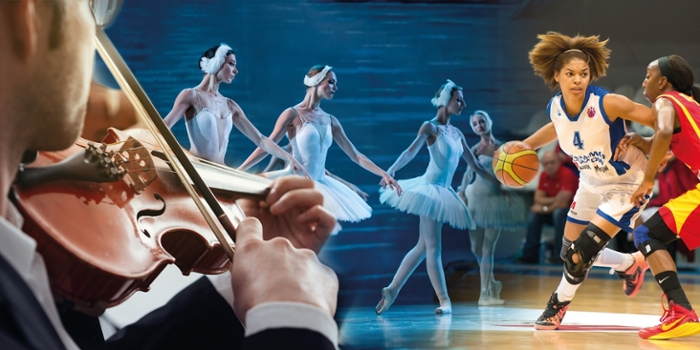T4X2.0 - Implementation of Training for Excellence in the practice of sport, music and dance
ProjectThe ambition of the Netherlands is to be structurally one of the 10 best sports countries in the world. Also, in the performing arts such as music and dance we want to compete with the best in the world. Achieving this absolute global top level requires many hours of training. The challenge here is to find the balance between quality and quantity of training, preventing overexertion, injuries and mental issues such as burnout.

In the RAAK project Training for Excellence (T4X) the team researched and evaluated various innovative practice methods among athletes, musicians and dancers. Previous research has shown that these practice methods can increase the quality of practice time. T4X showed that there is room for improvement in all areas by applying these practice methods.
Among other things, the project team found that the participants became more aware of how they divided their practice time, practised more efficiently and focused, and worked towards specific performances with more confidence. However, researchers know little about the extent to which these methods are applied in practice.
With this research we contribute to improving the quality of training and practice together with professional dancers, athletes and musicians. By working closely with these professionals, we can take an important next step in the sustainable use of scientific knowledge and insights in sport, music and dance.
Goal
Within T4X2.0, researchers are investigating how innovative practice methods can be sustainably incorporated and implemented in the training schedules of professional dancers, musicians and athletes. For this purpose, the project team is developing a toolkit that supports dancers, musicians and athletes in implementing the practice methods in their own training schedules.
Methods
T4X2.0 will be set up as implementation research. Such research is aimed at investigating how a certain intervention can be translated to a specific context and how, within that context, the willingness can be increased to deploy the intervention in a sustainable manner.
The research is carried out on the basis of two qualitative research phases, in which first important stakeholders from the world of sports, music and dance are interviewed. Subsequently, the main findings from the individual interviews will be concretised using the Delphi method.
Expected results/products
During the first qualitative research phase, the project team will identify the main challenges, barriers and opportunities with regard to the sustainable implementation of the T4X training methods. Building on this knowledge, in the second research phase they will develop a toolkit containing tips, guidelines and practical tools for professional dancers, musicians and athletes who want to implement the different training methods in their training schedules.
Impact on society
With T4X2.0 the project team wants to further bridge the gap between research and practice. In the first place, it should enable professional athletes, musicians and dancers to classify practice time more efficiently. However, the results of T4X2.0 may also have broader relevance for other domains where vitality and exercise are central.
Impact on education and research
In the future, the intended toolkit could also be used within education to teach students the process of introducing research innovations to the market successfully. Firstly, by making students aware of the implementation challenges within, for example, high performance sport. Followed by the identification of tools, by the example of T4X2.0, how to respond to these challenges. Lastly, broadening the toolkit’s application to non-performance-oriented areas, such as physical education, would be possible and desirable as well.
